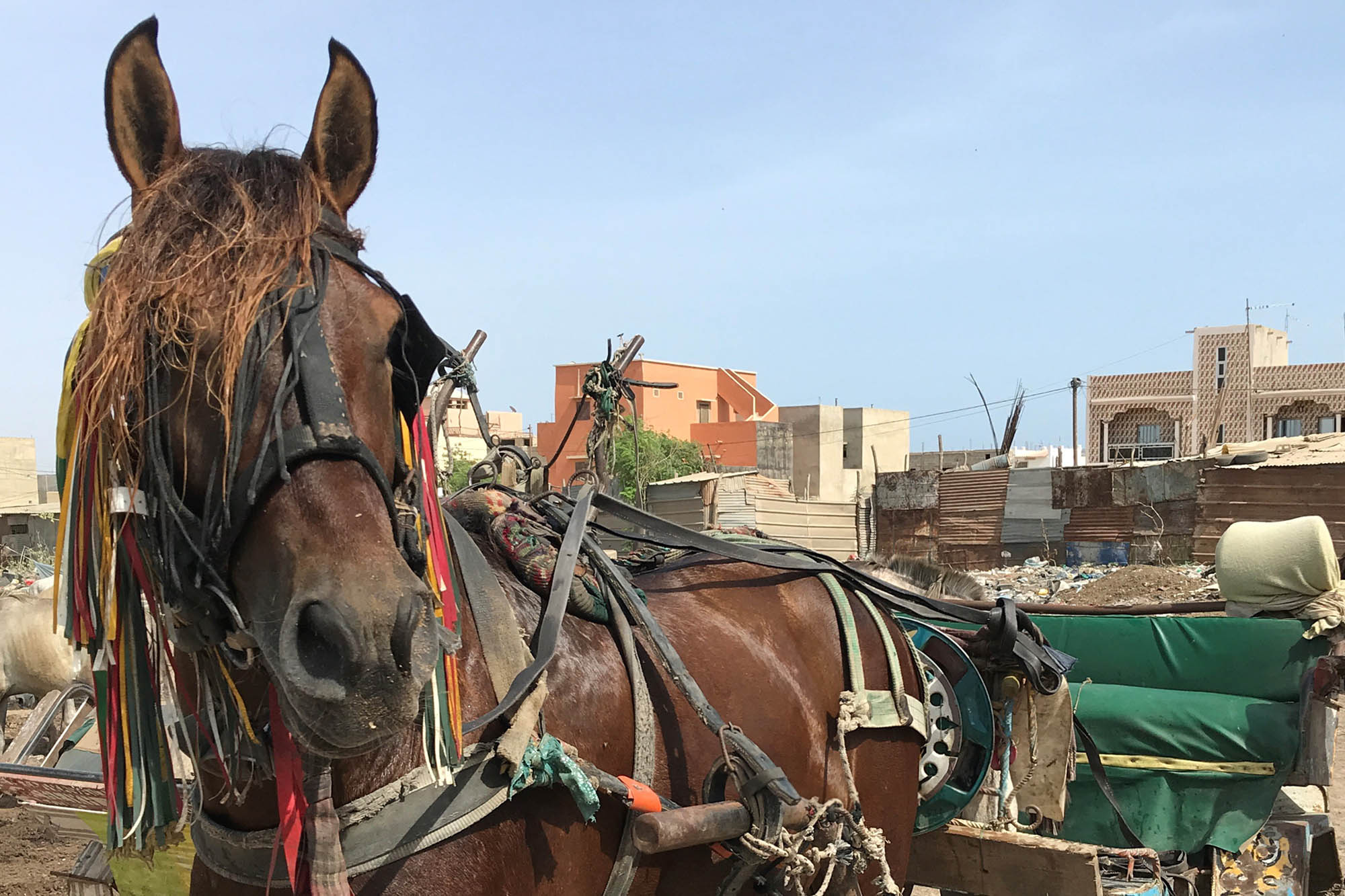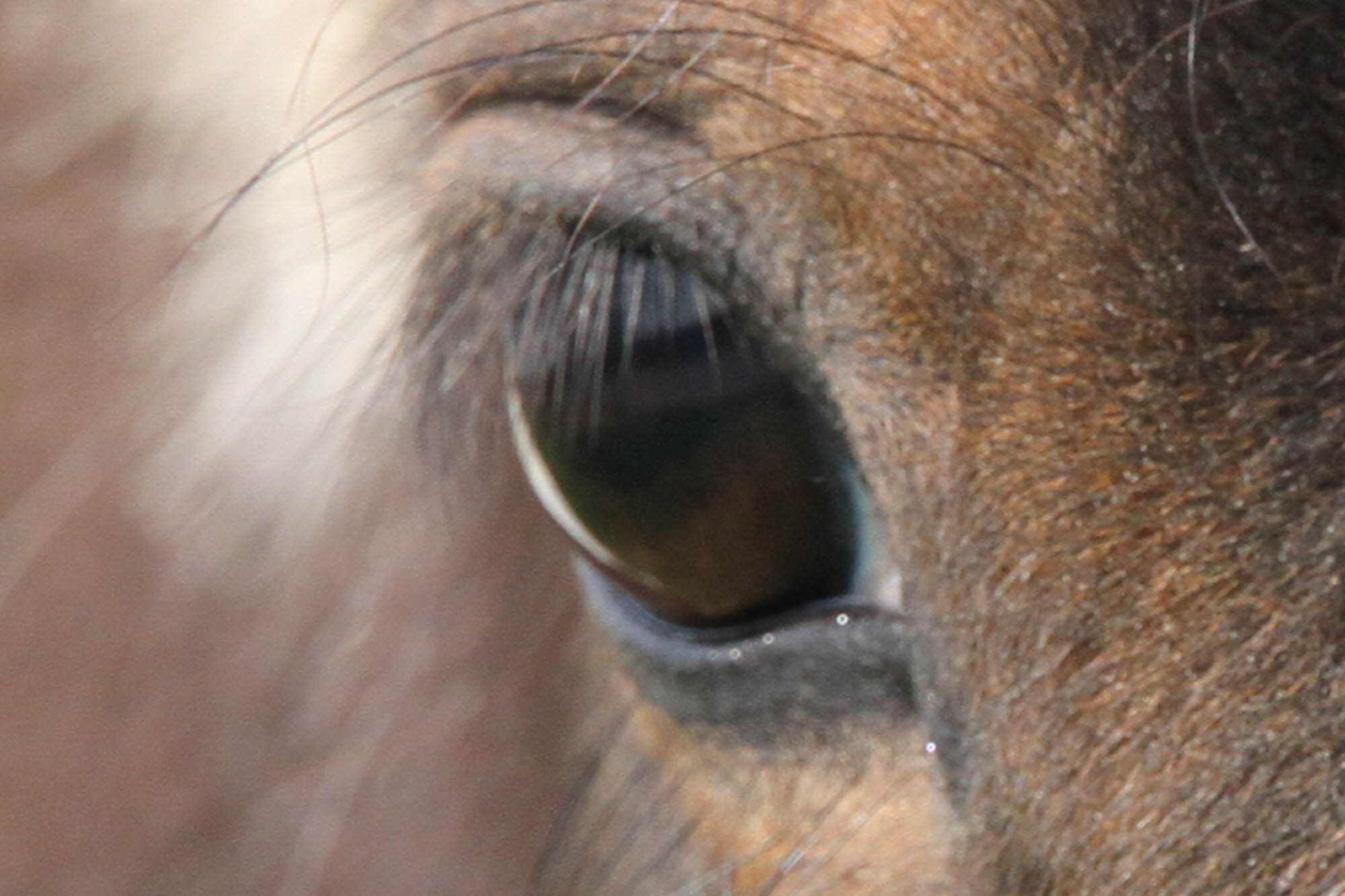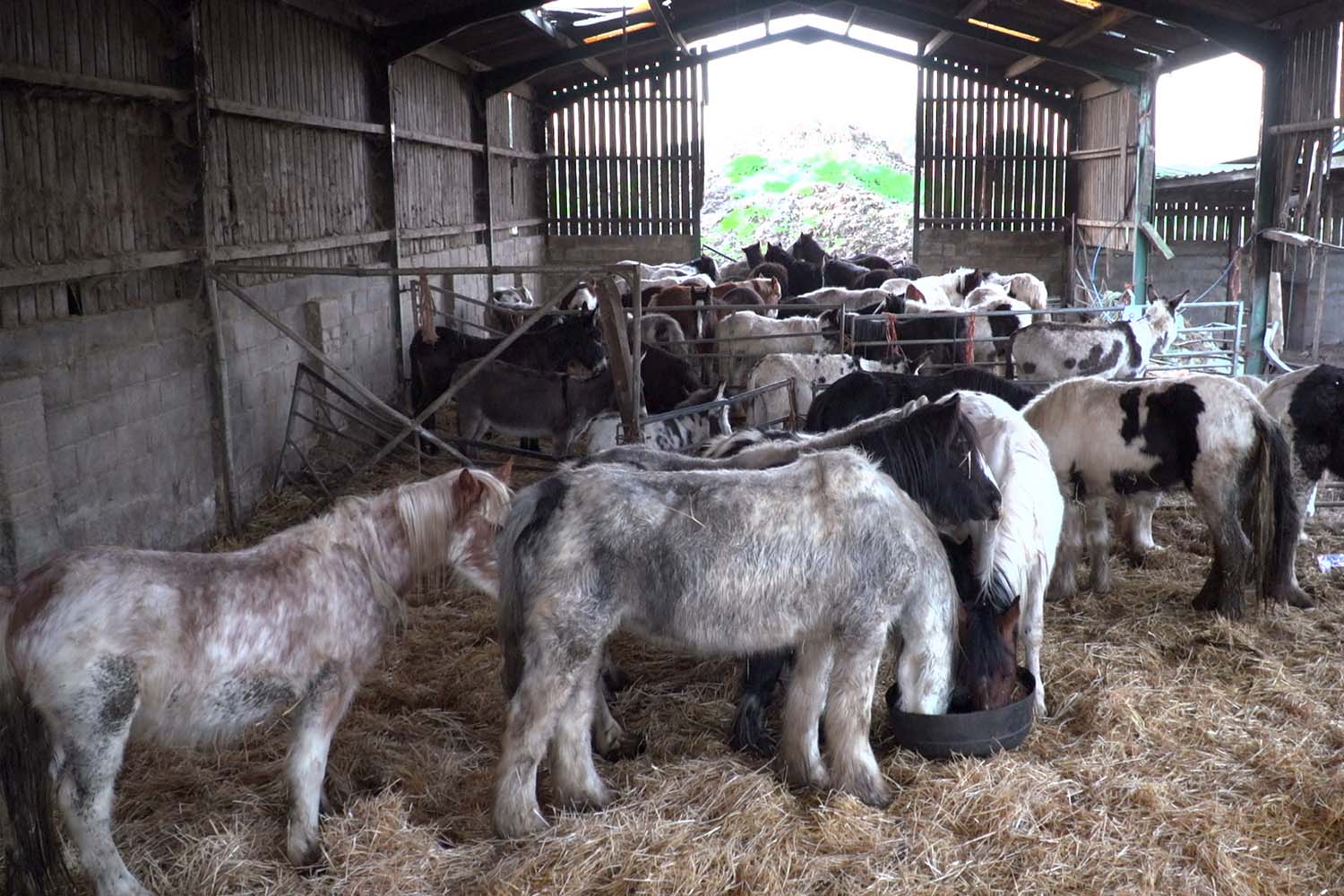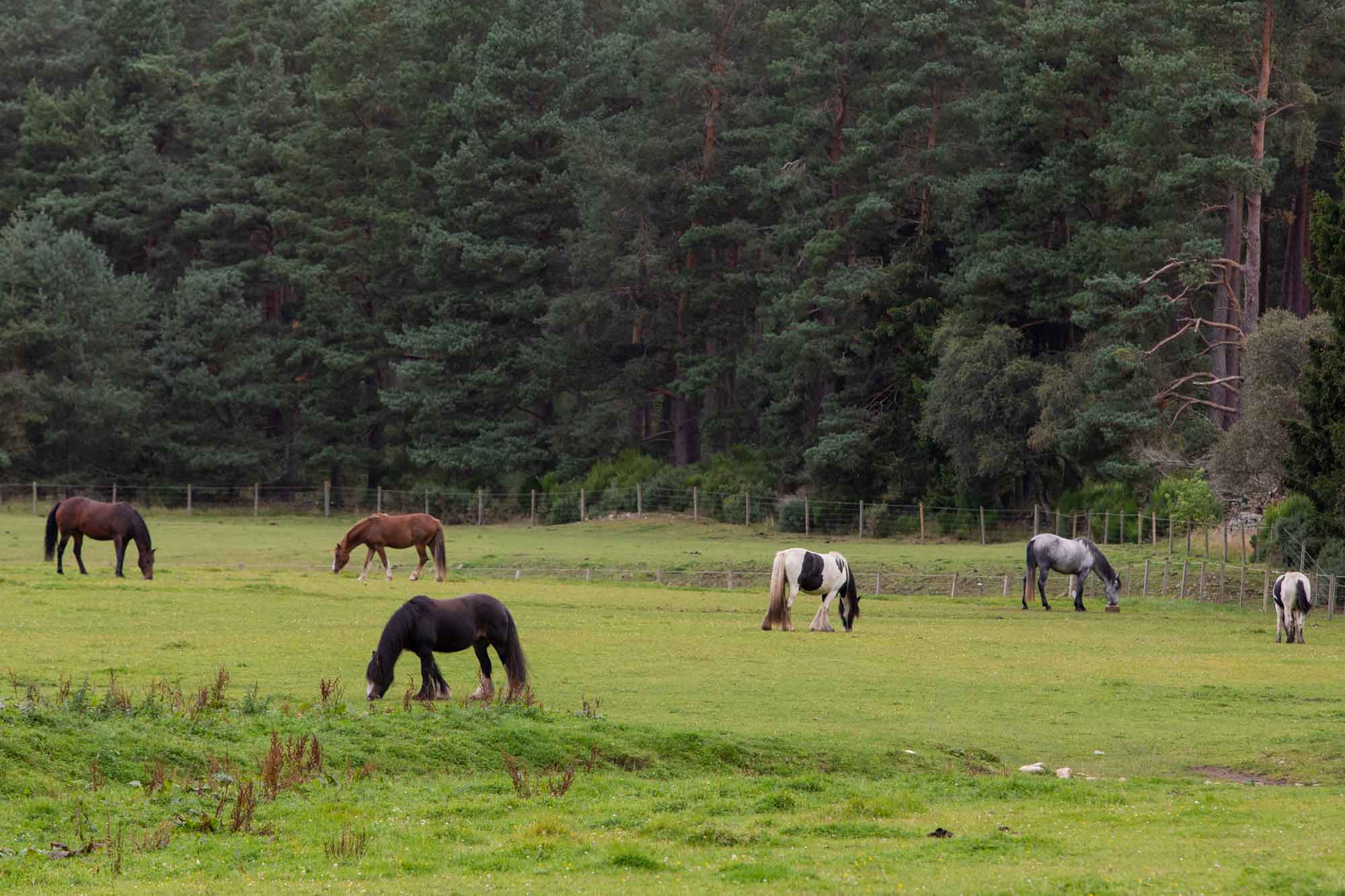Bringing about real change for horses around the world
Join us as we travel to our project in Honduras to find out how your support really does transform lives.
Posted on 16/10/2025

This year, we are celebrating 40 years of our international programme which enables us to work on a local level across the globe to help the horses, ponies, donkeys and mules who need it most.
In 15 countries across Latin America, Asia, Africa and Europe, we work alongside communities and local organisations to transform the lives of working horses and the people who rely on them – sometimes one horse and owner at a time.
Our International Programme Officer, Sebastian Da Silva, has recently returned from a visit to our project in Honduras where he has seen the impact of our work first-hand. We caught up with him to find out more.
Tell us a bit about Honduras…
Honduras is a vibrant and diverse country in the heart of Central America, bordered by Guatemala, El Salvador and Nicaragua, with coastlines on both the Caribbean Sea and the Pacific Ocean. Its capital is Tegucigalpa, while San Pedro Sula serves as a major commercial hub. The country has a population of just over 10 million people, and our project operates in Choluteca, a city in the south near the Pacific coast.
Honduras is largely mountainous, with a climate that varies by region—hot and humid along its coasts and cooler in the highlands. Choluteca is the hottest part of the country. While rich in biodiversity and natural resources, the country faces significant challenges, including economic inequality, vulnerability to hurricanes and political instability.
How do working animals in Honduras support people’s livelihoods?
Horses, donkeys and mules are indispensable in rural and mountainous areas. They transport goods, water and people in areas vehicles cannot reach, they support agricultural work, and they even provide income through rental or tourism-related activities. In many communities, they are the ‘tractors and pickup trucks’ of daily life. Their affordability and adaptability make them vital for families with limited resources.

When did World Horse Welfare start working in Honduras and why?
We began working in Honduras in 2010 to address critical welfare issues affecting both horses and the people who rely on them. In Honduras, around 70% of the population lives in poverty, and working horses, mules and donkeys are essential in helping people to sustain their livelihoods.
Horses here face many welfare challenges and common issues include malnutrition, dehydration, heat stress, harness injuries, poor shoeing, parasitic infections and exposure to unsafe environments.
There are also gaps in knowledge and resources with many owners lacking access to veterinary care and training, while economic constraints limit their ability to provide proper feed and shelter. Climate change is also a challenge as unpredictable weather reduces the availability of forage and increases flood risks.

Tell us a bit about the local organisation we work in partnership with…
We work with Equinos de Honduras (EQUHS), a non-profit organisation dedicated to improving equine welfare. Based in Choluteca, EQUHS provides veterinary and farriery services for horses, trains local service providers and integrates horse welfare into veterinary training. As with all of our international projects, our workshops and training programmes to enhance skills such as farriery and saddle making means that horses have access to the specialist care and services they need and deserve, while the farriers and saddle makers have employment which is sustainable and benefits the wider community.
We also work with EQUHS to develop areas of research relating to working horses and their welfare, in partnership with regional universities. Projects so far have included research into gastrointestinal parasites in working equids, the parasitic skin condition equine abronemosis and the impact of farriery and footcare on welfare. Future projects look set to research the number of working horses ponies, donkeys and mules in San Pedro Sula and an assessment of their welfare challenges.
What projects are we collaborating on at the moment?
Through our work across eight communities, we have been hosting educational workshops focused on the care and management of working horses, and carrying out practical demos on horse shoeing techniques, providing guidance along the way. These have been hugely successful, with vets and farriers experiencing an increase in clients while also developing a stronger understanding of equine welfare.
To help improve welfare more widely – and to address local concerns and issues – we help to implement regulations at a district level and form Equine Welfare Committees.

What is the project’s biggest achievement?
Our greatest achievement is transforming what started as a grassroots initiative, into a nationally recognised programme.
By building strong partnerships with government and academic institutions to help ensure horse welfare is a national priority, training local service providers and integrating horse welfare into school curriculums, we make sure that improvements in horse welfare and community livelihoods continue beyond the life of our project – and are sustainable.

What are the future ambitions for our work in Honduras?
It’s exciting to see the project develop in Honduras and, by 2027 – our charity’s centenary year – we hope to expand our work to reach up to five new districts and up to 100 schools.
Alongside this, we aim to strengthen horse care practices and help EQUHS establish itself as a national research hub, where data gathered and research undertaken will inform our work to help horses in communities across Honduras and the wider region.
On my recent visit, I was struck by the deep respect communities have for EQUHS and the trust they place in its team. Their regional coordinator, Lorena, plays a pivotal role in empowering the team and ensuring the organisation’s vision is realised.
Our international work with partner organisations and horse-owning communities helps us to better understand the challenges that horses and their owners are facing around the world.
By putting the horse at the centre of our work, we find practical solutions which ultimately lead to better welfare and stronger livelihoods – creating lasting change well into the future, all thanks to your support.
Topics
Related Blog Posts

Analysing the success of community projects in Senegal
Bursary student Faye Al-Nakeeb takes a look at the impact of our project in Senegal on the welfare of local working equines.

Putting on a practical training workshop in Lesotho
International Programme Officer Vicki Newton explains what goes into planning a practical training workshop.
Recommended News Articles

Responsibility for equine welfare is not a choice, it’s a duty and the equine sector must pull together
World Horse Welfare Annual Conference 2019 explored need for collective responsibility across the equine sector to tackle all elements of horse welfare head on.

Suspended jail sentence for woman who failed to care for more than 130 horses
Christine Kelly disqualified from keeping animals for life after being convicted of 15 offences.

Charities combine expertise to help horse owners cut costs not care
A number of equine charities have collaborated to produce two detailed guides for horse owners.
Enjoy reading stories like this?
Join over 65,000 other horse lovers and sign up for our email newsletter

Join over 65,000 other horse lovers and sign up for our email newsletter
Sign me up now